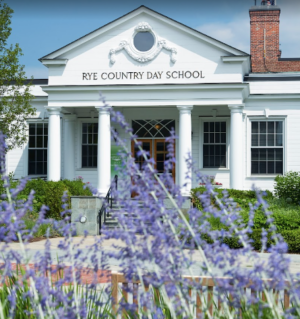Rye Country Day School gets tax exemption for off-campus faculty housing
An appellate court has ruled that Rye Country Day School is exempt from property taxes on off-campus faculty housing.
A panel of four Second Appellate Division judges decided on Jan. 25 that a Westchester Supreme Court justice erred when he upheld a decision by City of Rye officials who denied tax-exempt status for six townhouses on New Street.

“There was no rational basis” for denying the tax exemption, the appellate court ruled in reversing a 2020 decision by Supreme Court Justice Bruce E. Tolbert.
The elite private school, founded in 1869, is organized as a not-for-profit educational institution. About 900 students are enrolled in programs from pre-kindergarten through 12th grade.
For at least 25 years the school has offered housing to faculty and administrators at several off-campus sites.
In 2015, Rye Country Day School bought 29-39 New Street, next to its campus, for $2,275,000. In 2018, when the six townhouses at the site were fully occupied by faculty, it applied for tax-exempt status.
City of Rye Assessor Noreen Whitty denied the application, finding that the school had not established that the housing is an integral part of education. She assessed the property at $58,100.
She also determined that several previously exempted off-campus properties will remain exempt.
The school protested the decision to the Board of Assessment Review.
Rye Country Day School argued that housing is a critical recruiting tool for drawing and retaining talented teachers and administrators, as well as for competing against other private schools in Westchester and Fairfield counties and New York City for sought-after talent.
The review board upheld Whitty’s decision but reduced the assessment to $45,900.
The school petitioned Westchester Supreme Court to declare the property tax-exempt.
Justice Tolbert found that the housing is not an integral part of the school’s education process.
He noted that Rye Country Day School does not board any students, so the logical question is, Why would it board its faculty?
He depicted the housing as a perk and found that the school had not established “that the only way to hire the best and the brightest faculty is by offering housing.”
“Offering a perk to employees and them liking that perk,” he reasoned, “does not rise to the level that it is part of the educational process.”
The appellate justices noted that New York law has long recognized that properties used for staff housing by educational institutions is entitled to tax exemption.
The justices said the city had failed to show any meaningful distinction between the new property and several other residential properties that have been tax-exempt for at least 25 years.
Without the housing, the justices found, it would be difficult for Rye Country Day School to recruit qualified faculty, thus undermining its primary educational purpose.